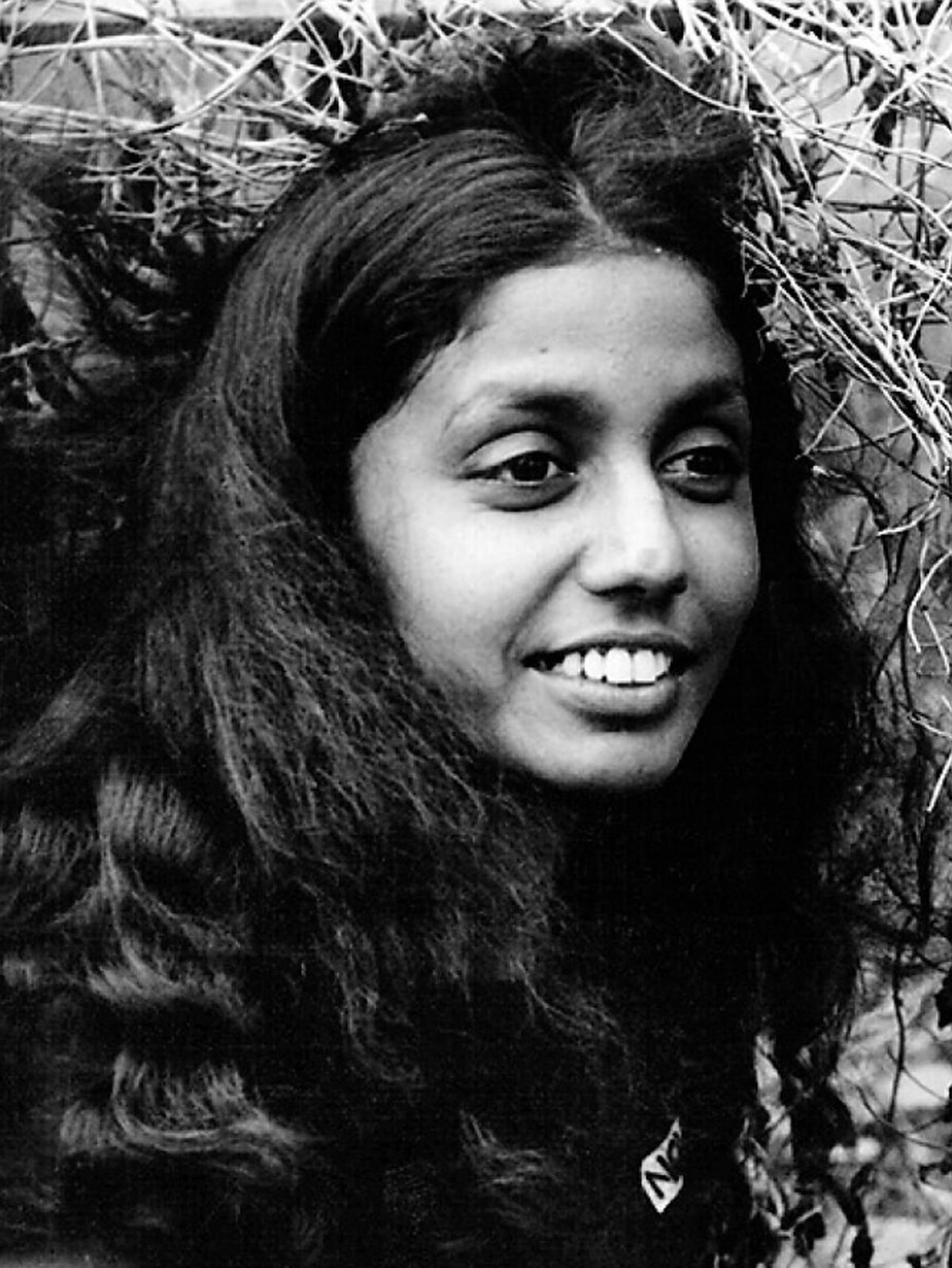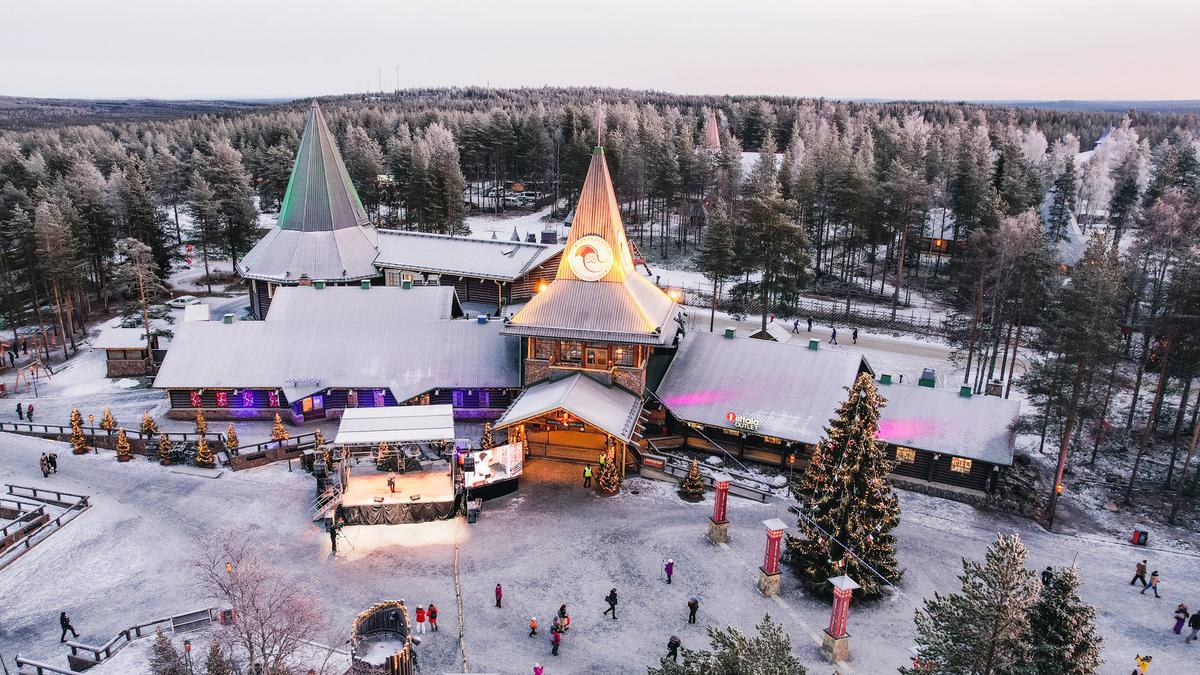In 2024, Indian travellers showed no signs of slowing down, with rising costs and uncertainties failing to dampen their enthusiasm. Travel was all about creating shared experiences, from attending sold-out concerts by artistes like Coldplay and Dua Lipa to exploring unique destinations with friends and family.
Looking ahead to 2025, this trend of seeking shared experiences is set to grow. From cheering at cricket matches to working with a view of the mountains, Indians in 2025 are expected to embrace travel with creativity, care for the planet, and thirst for meaningful moments.
The noctourism boom
The Milky Way at Namgyal Tsemo Gompa, the main buddhist monastery centre in Leh, Ladakh
| Photo Credit:
Getty Images/iStockphoto
Noctourism, or nocturnal tourism, is shaping up to be one of the most exciting travel trends for 2025, especially in India, where the diverse landscapes and clear night skies create the perfect setting for after-dark adventures. Imagine stargazing in Hanle, Ladakh, home to the Indian Astronomical Observatory and now India’s first dark-sky reserve, or witnessing the mysterious Chir Batti lights in the Banni grasslands of Gujarat. Places like Spiti Valley in Himachal Pradesh offer high-altitude stargazing opportunities, while Coorg in Karnataka provides magical nocturnal experiences amid coffee plantations and dense forests. Then, there are the bioluminescent beaches of the Andaman and Nicobar Islands, where the ocean glows at night.
Hotelier Avijit Singh of House of Rohet in Jodhpur says, since 2020 the property has observed a steady increase in interest in night-time activities, such as stargazing and night safaris. “This shift aligns with a change in booking patterns; previously, most guests arrived through travel agents with fixed itineraries, limiting their activity choices. Now, with more guests booking directly or online, there’s greater flexibility to explore various offerings,” says Avijit. He believes while stargazing may not typically be the primary reason guests choose House of Rohet, he believes many will be eager to participate upon discovering its availability. The property offers guests a captivating stargazing experience using a high-quality reflecting telescope equipped with auto-alignment technology. An on-site expert conducts engaging 30 to 40-minute sessions. “Activities like night safaris and evening walks have also gained popularity, reflecting a growing trend among travellers,” he adds.
Destination dining
In 2024, India’s rich culinary heritage attracted a growing number of travellers eager to savour its diverse flavours. The travel and tourism sector contributed around 9.1% to the total GDP of the country, with culinary tourism playing a pivotal role in this growth. Looking ahead to 2025, this appetite for gastronomic adventures is set to intensify.

Gauri Devidayal at The Table Farm in Alibag
| Photo Credit:
Special arrangement
Bengaluru-based Diganta Chakraborty, head of brand at The Soul Company, which creates events, experiences and concepts across food and culture, believes restaurants like NAAR in Himachal Pradesh exemplify this trend. “Similarly, The Table in Mumbai has embraced the farm-to-table movement by establishing its farm in Alibag to supply fresh produce for its menu,” he says, adding in Bengaluru, entrepreneurs like Saritha Hegde, founder, Not Just Hot Sauce, are creating immersive dining experiences on their farms, where guests can enjoy meals made from ingredients grown on-site, all while overlooking the scenic hillocks of Karnataka. This trend is gaining traction from the northwest in Rajasthan to the East in Santiniketan, Shillong, Assam, and Darjeeling as people seek to escape city life and reconnect with nature.
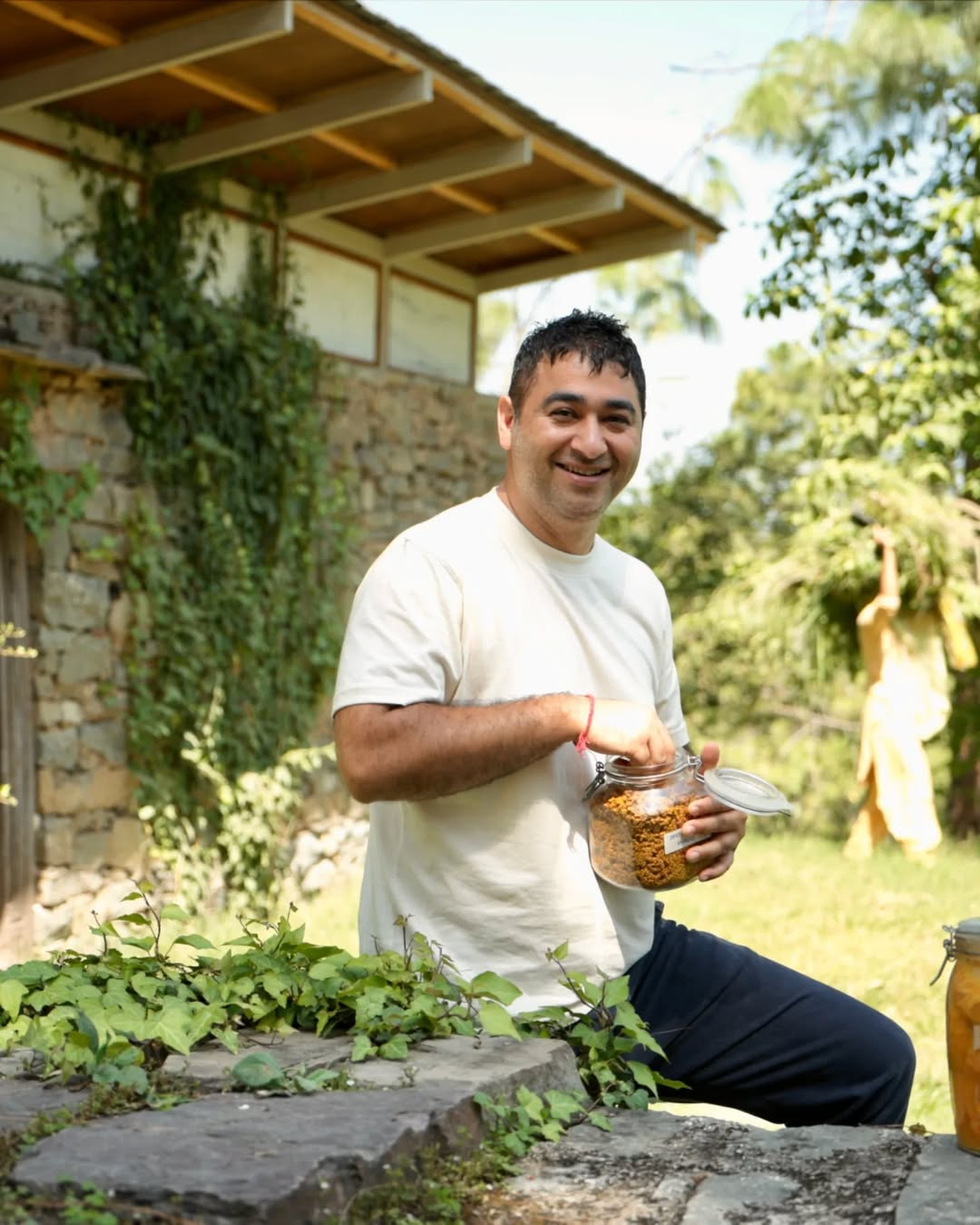
Prateek Sadhu at NAAR
| Photo Credit:
Special arrangement
While Michelin-starred chefs and the World’s 50 Best restaurants continue to attract attention, Diganta says there is a growing desire for more authentic, source-based dining experiences. “Travel has become more accessible, and people are eager to explore the origins of their food, leading to a plateau in the attraction of high-end pop-ups. Instead, there’s a shift towards cultural immersion and visiting farms or vineyards to understand the journey from farm to plate,” he says.
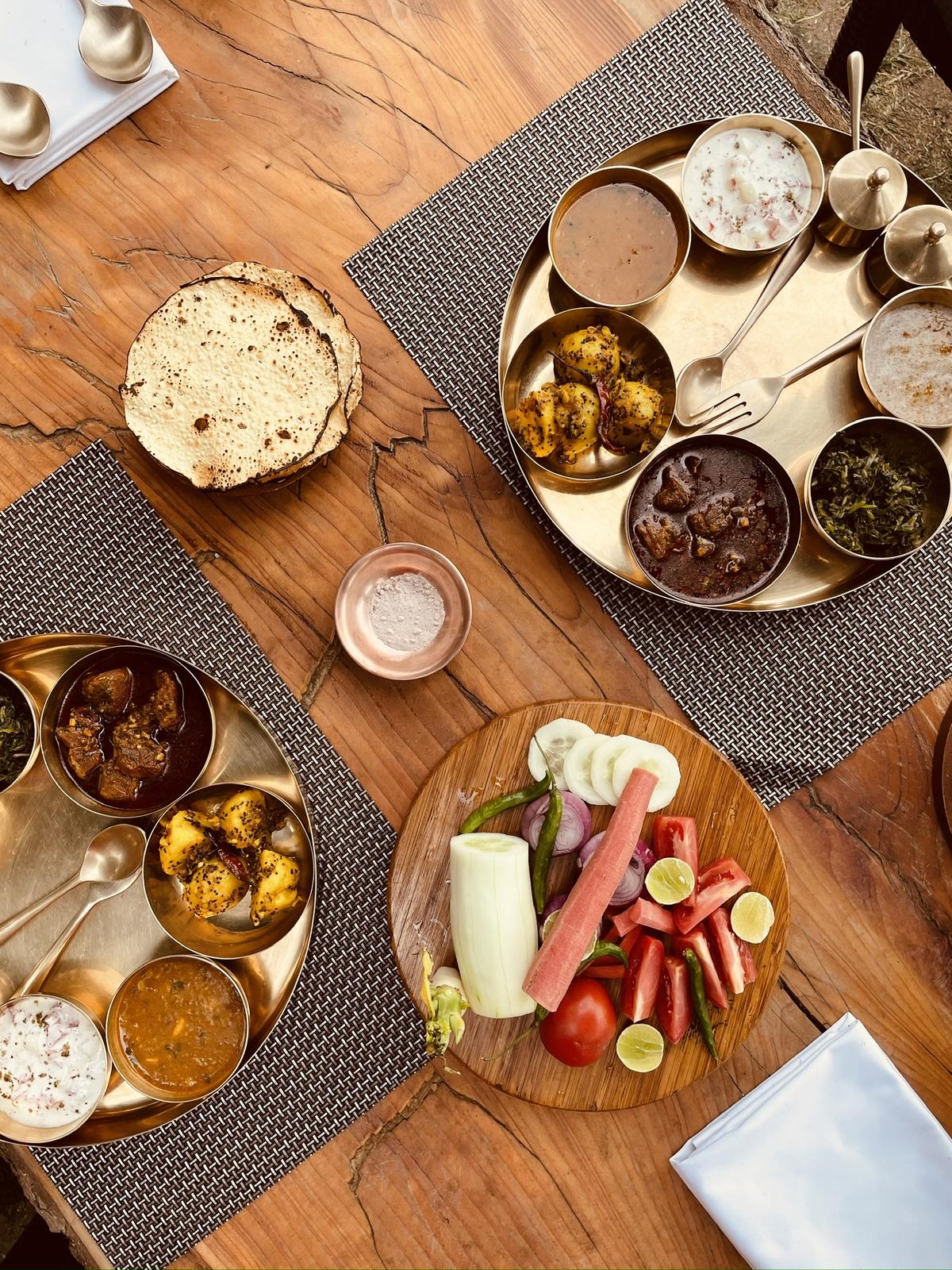
A meal at Mary Budden in Binsar
| Photo Credit:
Barry Rodgers
Diganta also believes that chefs and bartenders coming to India are increasingly interested in exploring the culture and intricacies of the country beyond just showcasing their skills. “For chefs, it’s not just about the food — it’s about discovering India’s crafts, such as locally-made crockery, aquaculture practices, and unique crop cycles like biannual harvesting,” he says.
India’s bar scene has also experienced significant growth, with international bar takeovers becoming increasingly popular. “Cities like Kolkata have hosted events featuring renowned mixologists, such as Yeonghwi Yun from Seoul’s Bar Cham, ranked 20th in Asia’s 50 Best Bars 2024. Additionally, ZLB23 at The Leela Palace Bengaluru has hosted over 30 international bar takeovers, enhancing its reputation as the only Indian bar in Asia’s 50 Best Bars 2024,” says Diganta.
Wellness boom
This year, India’s wellness industry experienced significant growth, with the health and wellness sector projected to reach a valuation of approximately ₹130,000 crores. Mental health innovations played a crucial role in this expansion. There was a marked increase in early childhood therapy, community-building initiatives, and corporate wellness programmes, reflecting a societal shift towards prioritising mental wellbeing.
Mahesh Natarajan, COO, Ananda in the Himalayas, believes wellness in India has matured significantly over the years. “People are now more open to immersive and purposeful experiences. We’ve seen a shift from short stays of four or five days to longer ones spanning a week or more. With this growing demand, wellness providers are becoming more evidence-based, using diagnostics and data to track progress,” he says.
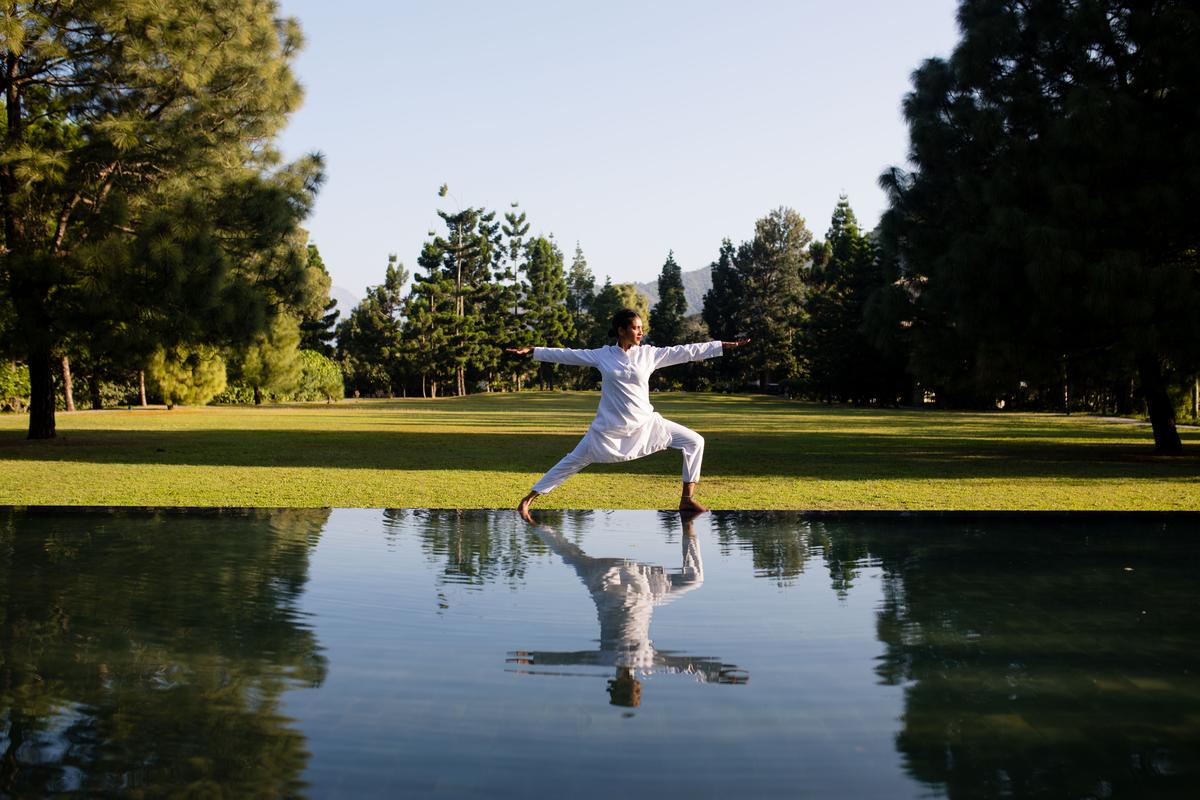
Ananda in the Himalayas
| Photo Credit:
Special arrangement
In 2025, a major focus area for wellness-related travel will be addressing issues such as hormonal imbalances and autoimmune diseases.
Stress, especially its impact on sleep, is another priority. Mahesh says many people who check in to the resort report disturbed sleep or insomnia. Wellness programmes now include detailed sleep mapping and techniques to help improve sleep quality. “Emotional and spiritual well-being is also gaining importance. Practices like sound healing, mantra chanting, and Vedanta philosophy are being integrated alongside physical therapies, helping people build a foundation for long-term wellness,” he says.
Elevated airport experiences
In recent years, India’s airports have been elevating their culinary offerings, transforming terminals into destinations for fine dining. A notable development is the partnership between Michelin-star Chef Gordon Ramsay and Travel Food Services (TFS), announced in July 2024. This collaboration plans to introduce six of Ramsay’s dining concepts — including Gordon Ramsay Plane Food, Street Pizza, Street Burger, and Gordon Ramsay Plane Food To-Go — across major Indian airports by 2027.
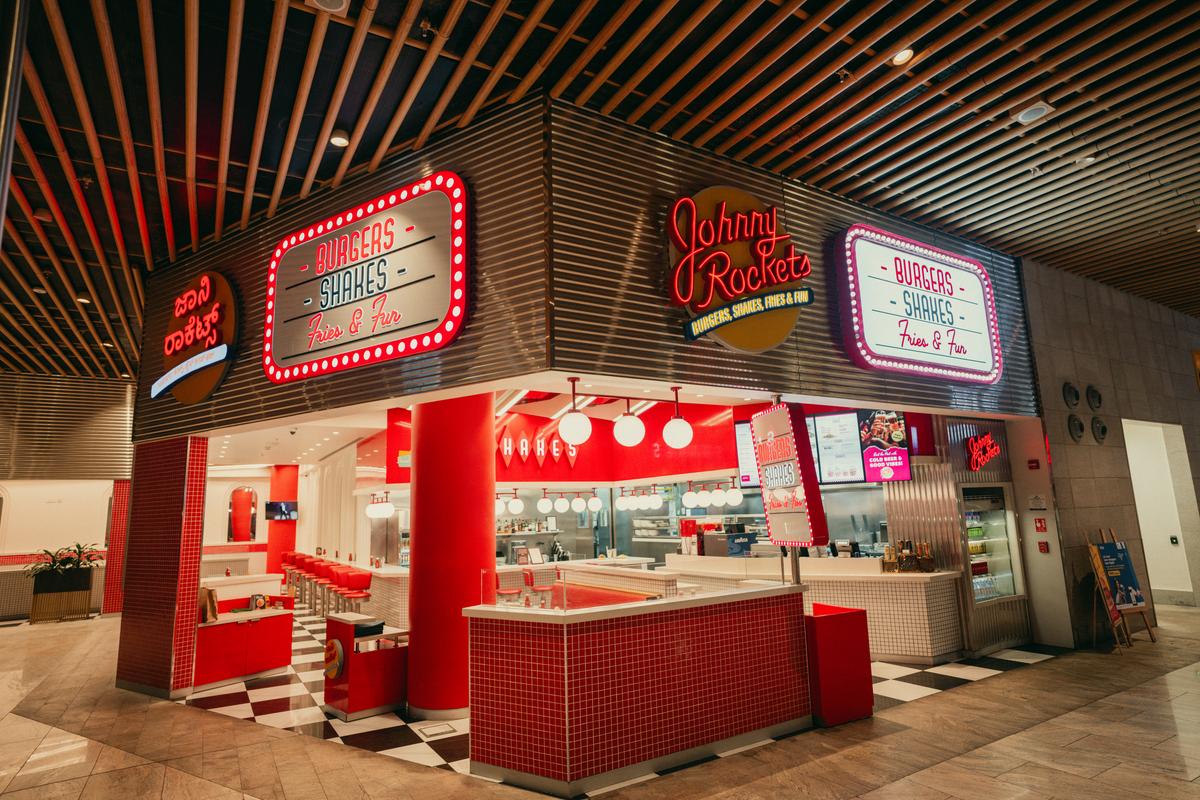
The Johnny Rockets outpost at Bengaluru’s Terminal 2
| Photo Credit:
Special arrangement
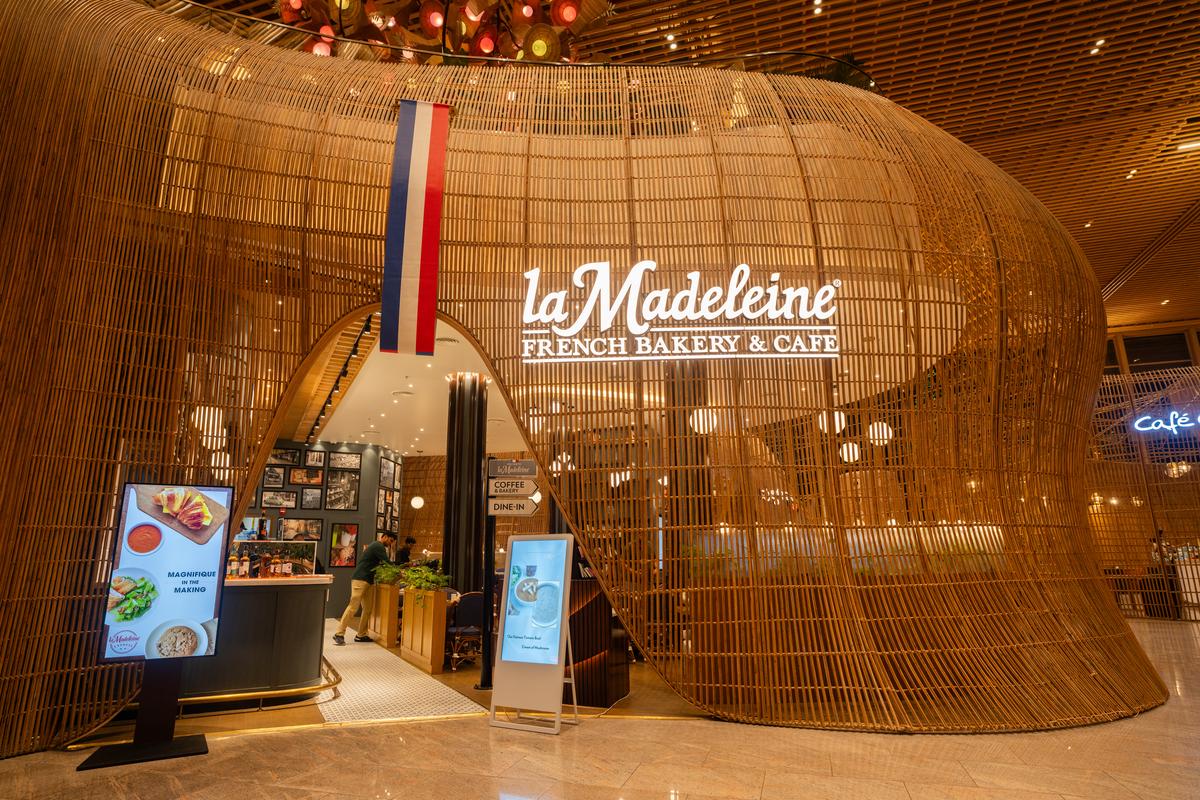
Dallas-based La Madeleine’s first international location at Bengaluru’s Terminal 2
| Photo Credit:
Special arrangement
At the GVK Lounge inside Chhatrapati Shivaji Maharaj International Airport in Mumbai, too, business class travellers can avail of amenities such as a library, business centre, and fine-dining options in a space that has been recognised as the ‘World’s Leading Airport Lounge — First Class 2015’ at the World Travel Awards.
At Bengaluru’s Terminal 2, travellers do not just pass through, but pause, explore, and indulge. “A key differentiator for us is the celebration of Karnataka’s culinary heritage, which is woven into every aspect of the airport’s philosophy. The 080 Domestic Lounge stands to showcase this ethos, with a menu that encompasses the region’s diverse flavours, traditional cooking techniques, and locally sourced ingredients,” says a representative. The ‘50 Mile’ initiative, led by celebrity Chef Ranveer Brar, emphasises hyperlocal sourcing from within a 50-mile radius, supporting local farmers. This philosophy extends beyond the food itself, with the Lounge’s design immersing travellers in Karnataka’s culture — from the rustic charm of the Kodagu Café to the luxury of the Mysore-inspired spa.
Recognising the sophisticated palates of its international travellers, Bengaluru’s Terminal 2 also has exclusive first-in-India establishments such as Johnny Rockets, Michelin-starred Wolfgang Puck, Brioche Doree, James Martin Kitchen, PF Chang’s, Giraffe, Gully Kitchen, and the first-ever Hard Rock Café at an airport.
AI assistance
In 2024, India’s travel and hospitality sectors embraced Artificial Intelligence to enhance customer experiences and operational efficiency. The iconic Taj Mahal Palace in Mumbai has integrated AI-driven chatbots to assist guests with reservations and inquiries, providing personalised recommendations and streamlining the booking process. The Oberoi Hotels & Resorts uses AI for dynamic pricing, analysing market trends and booking patterns to optimise room rates and maximise occupancy.
With more people seeking unique culinary adventures, cultural immersions, and wellness retreats, travel is no longer just about the destination — it is about the stories, connections, and memories created along the way.
Looking ahead
Skyscanner’s Travel Trends 2025 Report says 66% of Indians plan to travel more, with many prioritising collective activities. 53% are eager to attend live sports events, while 79% are drawn to immersive art experiences.
Skyscanner’s Travel Trends 2025 report reveals that 84% of Indian travellers feel confident using AI for various travel-related tasks, including destination research and flight bookings.
Hilton’s 2025 Travel Trends Report indicates that 20% of travellers plan their journeys specifically around unique culinary experiences
Published – December 13, 2024 05:15 pm IST



